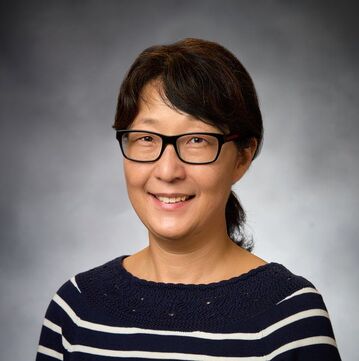Principal Investigator
Seung Yon (Sue) Rhee is a Michigan State University Foundation Professor in the departments of Biochemistry and Molecular Biology, Plant Biology, and Plant, Soil, and Microbes and Director of MSU’s Plant Resilience Institute. Dr. Rhee’s group strives to understand how plants adapt and acclimate to changes in temperature, water availability, or nutrient limitation. They are also interested in decoding biological traits from molecular to organism scales. In addition, they are developing translational research programs involving engineering resilience and metabolic traits in bioenergy and cover crops. Dr. Rhee has extensive leadership, mentoring, and research experience and has trained over 160 scientists, many of whom have achieved leadership positions in academia, government, and industry.
|
Managers and Coordinators
Flavia Bossi (Senior Research Associate, Carnegie)
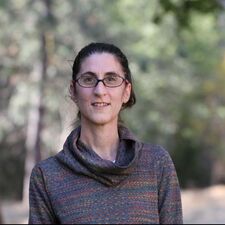
Since college, I have always been interested in the regulation of gene expression; promoters and transcription factors are still my favorite areas of study. Following that interest, I joined Patricia Leon’s lab at the Instituto de Biotecnologia (Universidad Nacional Autonoma de Mexico) to work on the functional characterization of an AP2/ERF transcription factor involved in the glucose signaling pathway in Arabidopsis thaliana. It was a challenging Ph.D. project that excited, frustated, and at times puzzled me. Early in 2010, I decided to join Sue Rhee’s lab to study a family of regulatory proteins important for another level of gene regulation – targeted degradation of proteins. I was drawn to the Rhee lab for several different reasons. 1- to try to grasp the way of thinking of bioinformatitians (learn basic bioinformatics along the way), 2- to be part of an interesting multidisciplinary group, 3- looking for something new and outside of my comfort zone. Even though science eats up most of my time, I do have other interests. My most beloved hobbie has always been dance, both taking classes and enjoying dance performances. Moving to the Bay Area introduced me to another art form which is now one of my hobbies too: taiko drumming. And last but not least, I have a family-shared pastime: to play video-games. Favorite console? Nintendo DS … by far.
Sterling Field (Senior Research associate, MSU)
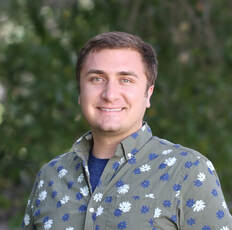
I finished my PhD in Biochemistry & Cellular and Molecular Biology at the University of Tennessee. My dissertation research focused on autophagy mediated turnover of mRNA-Protein complexes during flooding in Arabidopsis, and how RNA granules are regulated during stress. For my masters, I worked on miRNA mediated tassel development in Maize at East Carolina University, in North Carolina. I earned my bachelors at the Ohio State University, where I researched transcriptional regulation of floral development in Arabidopsis, and majored in Plant Cellular and Molecular Biology. Outside of the lab I co-lead the LGBTQ+ Plant Scientist Network, advocate for LGBTQ+ visibility and support in STEM, and enjoy hiking, gardening, and reading science fiction.
Charles Hawkins (Curator & Plant Metabolic Network Director, MSU)
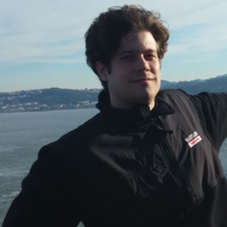
I received my Ph.D. from U. Maryland under Dr. Zhongchi Liu, where I studied the ways in which gene expression and hormones come together to shape the parts of the flower and worked on a new model of the role of auxin in fruit development. I also worked on pipelines for genomic analysis in strawberry and identified the mutation behind yellow strawberries’ color. I previously received a BA in physics and computer science from U. Maryland. After receiving my Ph.D., I worked for two years as a postdoc at the USDA-ARS Plant Germplasm Introduction and Testing Research Unit in Prosser, WA under Dr. Long-Xi Yu, working on automated pipelines for genomic selection for abiotic stress tolerance in alfalfa. I joined Rhee lab in August of 2018 as BioCurator of the Plant Metabolic Network. I am currently working to curate the PlantCyc database, to improve the accuracy and capabilities of our prediction pipelines, and to make the pipelines more automated. Building tools and resources that people use to do cool science is a passion of mine. Outside of work, I enjoy baking, electronics, programming, and going for walks.
Elena Lazarus (Scientific Coordinator, MSU)
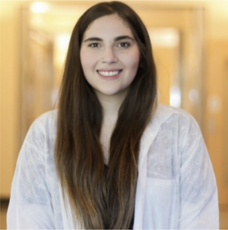
I received my B.S. in chemistry with a minor in English and an ACS certification in biochemistry from the University of Portland in 2019. While in college, I worked in two laboratories (the Hoffman lab and the Weilhoefer lab) on research focused on extracting, identifying, and quantifying compounds from plants. In 2018, I was a National Science Foundation Boyce Thompson Institute Plant Genome Research Intern in the Moghe lab at Cornell University. Prior to joining Carnegie, I also worked at the Oregon Health and Science University on the Patient-Centered Outcomes Research Institute’s peer review editorial board from 2017 to 2019. In the Rhee lab, I work on a variety of interdisciplinary projects using molecular and chemical techniques to study novel genes and mechanisms. In my free time, I love to cook and bake, read, and go hiking.
Karine Prado (Senior Research Associate, MSU)
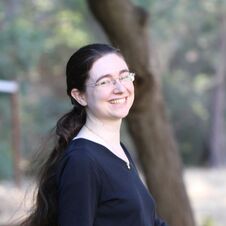
I received my PhD from the University of Montpellier (France) where I studied the molecular and cellular mechanisms controlling the hydraulic properties of Arabidopsis thaliana rosette in response to environmental stresses. Then I joined the University of Edinburgh (UK) as a postdoctoral research associate. I studied the contribution of non-transcriptional mechanisms to biological timekeeping of the pico-alga Ostreococcus tauri that has become a new relevant model for plant Systems Biology. Then I studied how light and thermo-sensitive phytochrome photoreceptors regulate chloroplast RNA processing and photosynthesis. At the Carnegie Institution, I am going to study mechanisms of thermoadaptation of a desert extremophile C4 plant. The long term goal of this project is to improve crops and to address relevant challenges in response to worldwide climate changes. When I am not working in lab, I like hiking, dancing, swimming, reading and watching movies.
Bioinformatics
Bo Xue (Programmer, MSU)
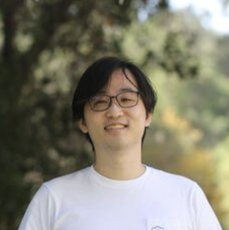
I graduated in 2015 from University of Minnesota, Twin Cities with a Master's degree in Computer Science focusing on data mining and recommender system. Discovering new information from data has always been an interesting topic to me. After working at the Chinese Academy of Science on the systematic characterization of mice miRNA expression, I developed a fondness for bioinformatics. Since joining Sue Rhee's lab in 2015, I have been working on many interesting projects, mainly the Plant Metabolic Network. Which includes developing computational pipelines and the visualization of our databases. If I'm not working, you'll probably find me trying to catch a movie. I love the theater going experience.
Postdoctoral Fellows
Joanna Feehan (Postdoctoral Fellow, MSU)
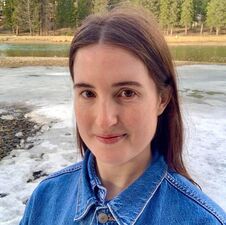
My scientific career has formed from diverse experiences. I completed a Bachelor's Degree in Nursing before a Masters Degree in Cell Biology studying retinopathies using Xenopus laevis tadpole models at the University of British Columbia. For my PhD, I joined the lab of Jonathan Jones at The Sainsbury Laboratory in Norwich, UK where I used biochemical approaches to understand signaling mechanisms in plant-pathogen defensee responses. As a postdoc here at Carnegie, I am working in the lab of Sue Rhee to understand the mechanisms of extreme heat-adaptation by Tidestromia oblongifolia using population genomics approaches.
Danielle Hoffmann (Postdoctoral Fellow, MSU)
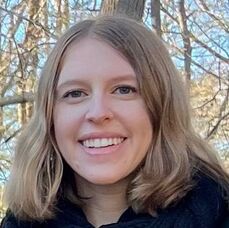
Danielle did her undergraduate studies at NC State University in Raleigh, North Carolina, majoring in Plant Biology and Biochemistry. She went on to do her PhD in Plant Molecular Biology at Michigan State University in Dr. Yair Shachar-Hill's group, studying lipid biochemistry in a model green microalgae. She will be working on developing genome-scale metabolic models in pennycress plants in response to drought in Dr. Seung Rhee's lab at Carnegie as a visiting postdoc
Bethany Holland (Postdoctoral Fellow, MSU) |
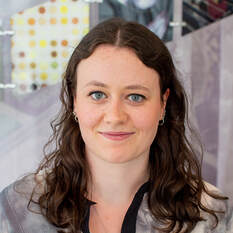
I am interested in using computational methods to identify metabolic engineering strategies for improving plant growth under changing environments. I earned my master's degree in industrial mathematical modeling from the Loughborough University, and doctorate in plant sciences (supervised by Colin Osborne, Richard Clayton & Nick Monk) from the University of Sheffield. My PhD focused on modelling plant growth by investigating source-sink dynamics. Since then, I worked as a postdoc with Stephen Long at University of Illinois at Urbana-Champaign building and analyzing whole-plant genome scale metabolic models of nitrogen symbiosis to assess the carbon cost of nitrogen fixation in soybean. Now, in the Rhee lab, I will be working on metabolic models of sorghum to study how plants respond to drought and identify genes that contribute to growth under drought. In my free time, I love going to the gym, cooking and watching movies.
Purva Karia (Postdoctoral Fellow, Carnegie)
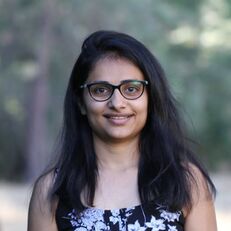
I received my PhD from University of Toronto in the lab of Dr. Keiko Yoshioka. My PhD research focused on the subcellular localization, function and the importance of post-translational modification of Arabidopsis tail-anchored protein, Triphosphate Tunnel Metalloenzyme 1 (TTM1). I have always been interested in understanding plant hormone signaling and the significance of the protein post-translational modification. In the Rhee and Ehrhardt labs, I will be working on the Sorghum Metabolic Atlas project to unravel the localization and functions of Sorghum metabolic enzymes. Outside of the lab, I enjoy camping, hiking, baking and visits to the dog park with my furbaby.
Megan Ruffley (Postdoctoral Fellow, Carnegie)
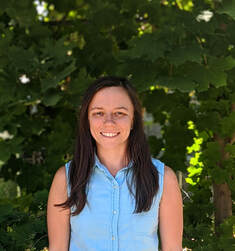
I am interested in using machine learning algorithms to understand selection across plant genomes in response to stress. I received my PhD in Bioinformatics and Computational Biology at the University of Idaho where I focused on performing simulation-based model inference using machine learning algorithms in areas ranging from demographic inference and phylogenetics to community-wide assembly mechanisms. This research was concentrated on disjunct plants of the Pacific Northwest temperate rainforest, but also focused on community-wide plant ecosystems, such as island plant communities. I am currently interested in continuing to apply machine learning algorithms to novel problems in evolutionary biology that can aid in solving our world’s most challenging problems. In the Moi and Rhee labs, I continue to investigate these algorithms as I study the relationship between genetic adaptation and response to stress in economically and agriculturally important crop plants. Investigating such adaptations to stress aid in our struggle to understand the future impacts of climate change.
Matt Stata (Postdoctoral Fellow, MSU)
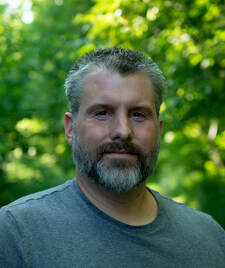
Matt Stata is an evolutionary biologist with an interest in the convergent evolution of complex traits. One of the most prominent examples of such a trait is C4 photosynthesis in terrestrial plants. Despite requiring specialized leaf anatomy and highly regulated tissue-specific expression of numerous enzymes and transporters, C4 photosynthesis has evolved from C3 ancestors independently over 60 times in flowering plants. C4 photosynthesis thus represents an excellent system in which to ask questions about how evolution by natural selection solves a significant problem such as photorespiration and the limitations of Rubisco, and how many different ways such a solution can be achieved. Matt's PhD research at the University of Toronto focused on C4 evolution in Blepharis (Acanthaceae). In this genus, C4 photosynthesis evolved independently five times, and a large diversity of extant C3-C4 intermediate phenotypes exist. During Matt's time at UofT he also helped to establish a large genomics project focused on the evolution of C4 photosynthesis named C4 Phylomics. At the Carnegie Institute, Matt works in the lab of Dr. Sue Rhee to further develop this project, focusing on obtaining additional germplasm with the ultimate goal of having genomic resources available for every independent C4 lineage on the planet, and analyzing these data to identify previously unknown features of C4 evolution. Besides research, Matt is interested in electronic music, photography, gardening, and cycling.
Graduate Students
Evan Saldivar (Ph.D. Student, Carnegie)
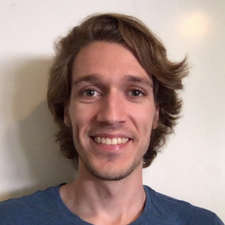
I graduated from UC San Diego in 2019 with a major in Molecular Biology and a minor in Mathematics. My previous research focused on small-molecule specialized metabolism in maize (Zea mays) roots, with a specific focus on terpenoid biochemistry. I am broadly interested in plant biochemistry, as well as the application and development of new techniques, both experimental and computational. I am starting a PhD in Stanford's Biology Department in Fall 2020, and am excited to engage with the broader scientific community, at both Stanford and the Carnegie Institute!
Research Assistants
Jacob Gantz (Research Assistant, MSU)
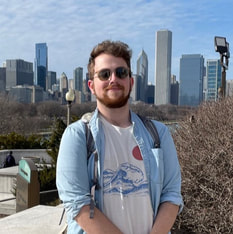
My name is Jacob Gantz, I am a 2022 graduate of Lyman Briggs College at MSU with a BS in Biology. I am originally from metro Detroit and spent most of my life in the area. I originally became interested in plant biology while doing undergraduate research studying the effects of plant viruses on the traits of switchgrass. I continued plant virus ecology work in the Malmstrom Ecology Lab as a lab technician. There, I worked on a variety of projects ranging from studying interactions between plant viruses, mycorrhizal fungi, and oats to identifying novel viruses in paw paw and wild ryegrass. I am very excited to continue my work in plant biology in The Rhee Lab. In my free time I enjoy going for long walks, reading sci-fi and fantasy novels, cooking, baking, and taking care of my plants!
Ava Kloss-Schmidt (Research Assistant, Carnegie)
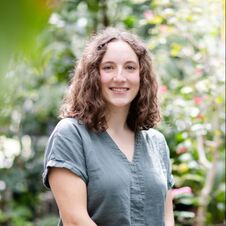
My name is Ava Kloss-Schmidt, I am a recent graduate of the University of Washington where I earned a BS in Plant Biology and minored in microbiology and ecology. I grew up in the pacific northwest which helped to foster my early interest in plants and plant biology. My undergraduate research focused on plant-herbivore interactions in the Steinbrenner lab. I have also studied wild-flower phenology with the MeadoWatch program in Mt. Rainier National Park and alpine floral diversity with the University of Washington herbarium. I love spending time in greenhouses and in the lab. I am excited to be working on the Sorghum Metabolic Atlas project with the Rhee lab. When I am not at work, I like collecting used cookbooks, cooking, baking, camping, hiking and visiting botanical gardens
INTERNS
Arianna Fobbs (Intern, MSU)

My name is Arianna Fobbs, I am an undergraduate at Michigan State University studying plant biology with a minor in Plant, Animal, and Microbial Biotechnology. I have previously worked in Dr Safferman’s Lab as an undergraduate research assistant assisting with the living machine hydroponics project, and doing research on cattails as a phytoremdiation plant. I have always been curious, and interested in looking at how I can use my creativity to help solve problems, particularly environmental problems related to climate change. In my free time I write instrumental music scores, play violin, participate in choir, make jewelry, and do metal working.
Julia Gershon (Intern, Carnegie)
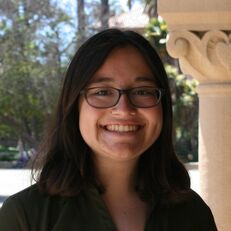
Julia is a sophomore at Stanford University pursuing a major in Bioengineering and a minor in Creative Writing. She is interested in a career that uses genetic engineering as a way to create positive change and is researching carboxysome evolution in cyanobacteria with the Rhee Lab. In her free time, she loves writing, walks with friends and dogs, rambling about TV shows, and playing Dungeons & Dragons.
Isaiah Kam (Summer Intern, MSU)

Hi, my name is Isaiah Kam, and I am an undergraduate at Middle Tennessee State University. I am pursuing a degree in Biology with a concentration in Genetics and Biotechnology. I currently work as a research assistant at my current university where I have been studying various medicinal plants and have gained a deep interest in agricultural genetics and sustainability. This summer of 2024 I am a REU recipient at MSU, and will be researching with the Rhee Lab. Outside of my studies I love to go on runs, garden, drink a lot of tea, and spend time with my family and pets.
Kap Kapoor (Intern, MSU)
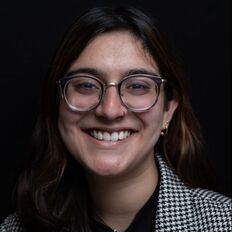
My name is Alisha Kapoor, but I go by Kap! I am a third-year Biochemistry and Molecular Biology major in the Lyman Briggs College. This is my first research position, so I am excited to see where this experience will take me! I hope that the skills that I learn here will transfer into my coursework and my career. When I'm not studying, I enjoy finding new music, experimenting in the kitchen, and spending time outside (when Michigan weather allows, of course).
Aidan Kile (Intern, MSU)
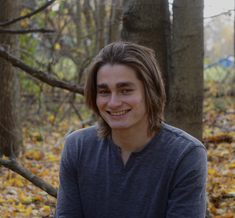
My name is Aidan Kile, I am an undergraduate at Michigan State University studying Biosystems Engineering with a concentration in Biofuels and Bioproducts. I previously worked in the Niederhuth lab as an undergraduate research assistant and primarily focused on cloning drought resistance genes in A. Thaliana. I hope to use my knowledge gained in the Rhee lab to kickstart a career in bioenergy research and help create a more sustainable future. In my free time I enjoy playing guitar, traveling, learning new skills (mostly useless but fun stuff), and spending time outdoors. I’m also a pretty big nerd and love anything Star Wars or Lord of the Rings.
Peyton Vanada (Summer Intern, MSU)
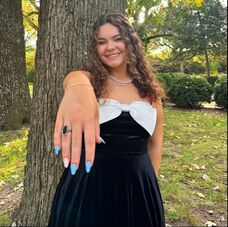
My name is Peyton Vanada! I attend Meredith College in Raleigh, North Carolina. I am a Biology major with minors in chemistry and mathematics. I am so excited to join The Rhee lab for the summer of 2024. I have previously worked in a chemistry lab researching THC analogs in commercial products. I love research and hope The Rhee lab will further my passion for plant biology and agriculture. Outside of the lab I like trying new coffee shops and shopping.
Elisha Vil (Intern, MSU)
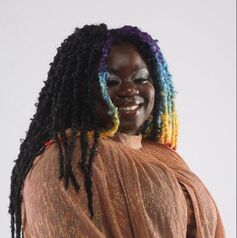
Elisha, a freshman at Michigan State University, is pursuing a degree in Biochemistry and Molecular Biology/Biotechnology with a minor in Philosophy. Currently interning at Rhee Lab, she actively engages in science outreach programs to ignite curiosity and foster a deeper appreciation for contemporary scientific advancements. She aspires to leverage her love for science to drive progressive research toward global sustainability. Outside of her studies, Elisha enjoys music, writing, animating, and spending time with her pets.

